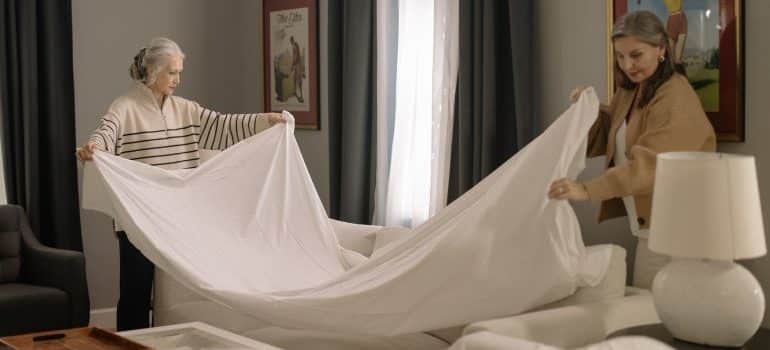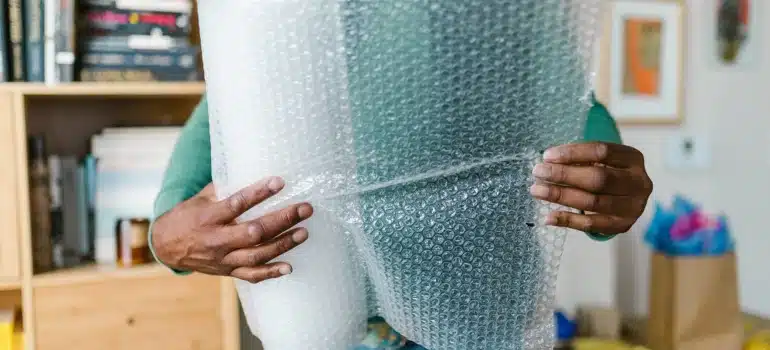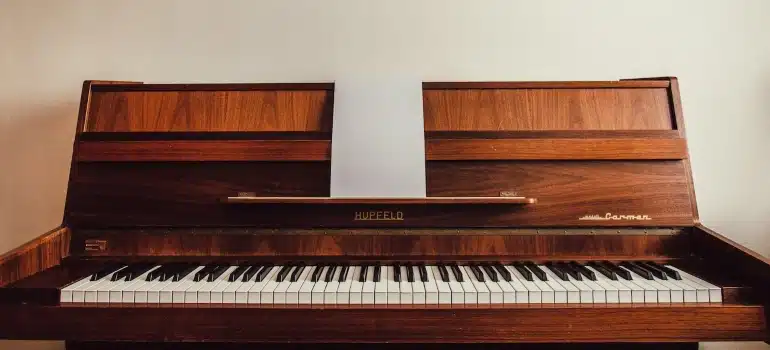The dos and don’ts of storing a piano
Your piano needs careful storage to keep its sound and appearance intact. In South Florida, the combination of heat and humidity adds extra strain on wooden and metal parts. Because of this, many people rely on Miami moving and storage options that offer climate control and proper care for delicate instruments. Moreover, this guide covers what you should and shouldn’t do when storing a piano in Miami, with practical tips on protecting your investment in this unique climate.
Dos for Storing a Piano
Proper steps in storing your piano can prevent costly damage and keep it in top condition. Use these best practices to protect your investment. Following these dos also ensures your piano maintains its sound quality and visual appeal over time.
Do store your piano in a climate-controlled environment
Miami’s fluctuating temperature and high humidity can harm your piano. Keep it in a space where the temperature stays between 68°F and 72°F, and the humidity stays between 45% to 70%.
Climate-controlled storage units in Miami offer these stable conditions and protect your piano from warping, cracking, and rust. This controlled environment helps extend the life of your piano’s wooden and metal components significantly.

Do use a breathable cover
Dust and dirt can accumulate, but covering your piano with breathable fabric allows air to circulate. This stops moisture from building up, which could cause mold or mildew. Avoid plastic or vinyl covers that trap dampness and damage the finish.
Do hire professional piano movers and storage services in Miami
Moving and storing a piano safely requires experience. Trustworthy piano movers in Miami provide reliable service and access to secure, climate-controlled storage designed for delicate instruments. They handle your piano carefully from pickup to storage.
Do elevate your piano off the floor
Moisture often collects on floors, especially concrete. Placing your piano on blocks or a platform keeps it off the ground and reduces the risk of water damage or mold growth, which is critical in Miami’s humid climate. Elevating the piano also improves air circulation around its base, helping to maintain stable moisture levels.
Do check your piano periodically during storage
Even in good storage, environmental changes can occur. Inspect your piano regularly for warping, rust, or mold. Early detection lets you address problems before they worsen. Thus, periodic maintenance can also include tuning or minor repairs to keep your instrument ready for use.
Don’ts for Storing a Piano
Avoiding common storage mistakes prevents long-term damage and preserves your piano’s value. Keep these important don’ts in mind. Following them helps avoid costly repairs and extends the life of your instrument.
Don’t store your piano in a garage, basement, or attic
These locations often experience extreme temperature swings and high humidity that damage wood and internal components. Garages also expose your piano to pests, dust, and dirt, speeding up deterioration.
Such environments rarely provide the stable conditions pianos need to stay in good shape. Instead, consider professional options like white glove storage, which offer climate-controlled, secure spaces designed specifically to protect delicate instruments.
Don’t place your piano near windows, heaters, or air conditioners
Sunlight fades finishes and dries wood, while heaters cause cracking. Air conditioners cause rapid temperature and moisture changes. So keep your piano away from all these sources. Even small exposure over time can cause irreversible damage to your instrument’s finish and structure.

Don’t cover your piano with plastic or non-breathable materials
Plastic traps moisture and creates a damp environment, encouraging mold and rust. Use breathable cloth covers that protect without sealing in humidity. Hence, proper ventilation under the cover is essential to maintain healthy air flow and prevent deterioration.
Don’t leave your piano unattended for long periods without inspections
Environmental conditions can change, causing unseen damage. Therefore, regularly check your piano and its surroundings to catch issues early. Consistent monitoring helps prevent minor issues from becoming expensive repairs.
Don’t attempt to move the piano without professional help
Pianos are heavy, fragile, and difficult to move. Professional antique movers use the right equipment and techniques to avoid damage and personal injury. Attempting a DIY move can result in structural damage to your piano or serious injury to yourself or others.
Quick summary of dos and don’ts for storing a piano
Here’s a quick recap of the most important dos and don’ts for piano storage. Hence, keeping these in mind helps protect your piano during storage:
Do:
- Use climate-controlled storage
- Cover with breathable fabric
- Raise the piano off the floor
- Hire professional movers
- Check the piano regularly
Don’t:
- Use plastic covers for storage
- Move a piano without professional help
- Skip regular inspections and maintenance
- Store the piano in garages, basements, or attics
- Place it near windows, heaters, or air conditioners
Following these tips keeps your piano safe and sounding great over time!

FAQ when storing a piano in Miami
Understanding the right way to store a piano protects your investment. Here are common questions about piano storage in Miami’s climate.
Q: What is the best environment in Miami to store a piano?
A: The best environment is a climate-controlled storage unit that keeps the temperature between 68°F and 72°F and humidity around 45% to 70%. It also protects the piano from warping, cracking, and rust caused by Miami’s heat and moisture.
Q: Can I store my piano in a garage or basement?
A: No. Garages and basements often have extreme temperature swings, high humidity, pests, and dust. These conditions can damage your piano’s wood, finish, and internal parts.
Q: Should I cover my piano with plastic while storing it?
A: Avoid plastic covers as they trap moisture and encourage mold and rust. Use a breathable cloth cover that protects from dust but allows air circulation.
Q: How often should I check on my piano while it’s in storage?
A: Inspect your piano every few months to check for signs of damage like warping, mold, or rust. Regular checks help you address issues early.
Q: Can I move my piano myself?
A: It’s not recommended. Pianos are heavy and fragile, and moving them requires special equipment and skills. Professional piano moving services in Miami provide safe and expert handling.
Q: Will my piano go out of tune during storage?
A: Yes, pianos can go out of tune due to humidity and temperature changes during storage. Schedule professional tuning soon after you retrieve your piano to restore sound quality.
Q: What precautions do professional movers take when storing a piano?
A: They use climate-controlled units, proper padding and covers, raise the piano off the floor, and inspect the piano regularly. They also secure the piano during transport and storage.
